How a Homebuyer Nearly Lost $150,000 (and How We Stopped It)

Real estate scams are getting smarter — but being vigilant can save you hundreds of thousands of dollars.
I’m Tiffany Webber, a real estate attorney in Lake Norman who has closed thousands of properties across North Carolina. Today, I’m sharing a real-life story of how my team caught a scam before it could cost a homebuyer $150,000 — and how you can protect yourself during your next real estate closing.
It All Started With a Suspicious Check…
We received a mysterious cashier’s check for $150,000 — before we even had a signed contract.
Huge red flag.
In a legitimate transaction, we always know when to expect funds. Unprompted money is never normal.
Shortly after, we received a contract for the property. But it wasn’t the standard North Carolina Offer to Purchase and Contract form. Instead, it used unconventional language and appeared to be thrown together without an attorney’s help.
One oddity? Maybe.
Two? Concerning.
Three or more? It’s time to sound the alarm.
How We Confirmed It Was a Scam
Here’s what we spotted:
-
Inconsistent email communication from both supposed buyer and seller
-
Unusual contract format not used in typical North Carolina real estate transactions
-
Unexpected earnest money check with questionable details (misspelled words, wrong number of digits)
We even called the listing agent — because the property was newly listed.
The agent confirmed:
-
No contract had been signed
-
No funds had been deposited by the seller
-
The property was definitely still available
At this point, we knew: this was an attempted scam.
How the Scam Was Supposed to Work
The scammers were hoping we’d:
-
Deposit their fake $150,000 cashier’s check.
-
Believe the funds were “pending” but not yet cleared.
-
Agree to a fake contract amendment lowering the earnest money deposit (say, down to $30,000).
-
Wire them back the “overpayment” — real money from our trust account.
-
Watch their original fake check bounce, leaving our trust account $120,000 short.
It’s a scary, real tactic that’s catching even experienced agents and attorneys off guard.
How We Stopped the Scam in Its Tracks
At Thomas & Webber, we have strict policies in place:
-
No funds are released until checks fully clear.
-
No contract is accepted without verification.
-
Any suspicious behavior gets escalated immediately.
We quickly blocked the scammers, alerted the listing agent, and reported the attempted fraud to IC3.gov — the FBI’s internet crime reporting center.
While you might not hear back after filing a report, it helps authorities build cases against these criminals.
How Buyers and Agents Can Protect Themselves
If you’re buying a home in North Carolina — or you’re an agent helping clients — remember:
✅ Be skeptical of any unexpected money or contracts.
✅ Verify everything with your real estate attorney or brokerage.
✅ Never wire funds or send refunds until a check has fully cleared.
✅ Report suspicious activity to IC3.gov.
In today’s market, especially with large earnest money deposits, vigilance isn’t optional — it’s critical.
Closing Soon? Work With a Team That Protects You
At Thomas & Webber, we treat your closing like it’s our own.
Whether you’re buying or selling a home, we help you stay protected — every step of the way.
👉 Ready to close with a team that catches red flags before they cost you?
Send your contract to [email protected] and let’s get you home safely.


